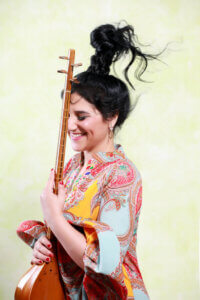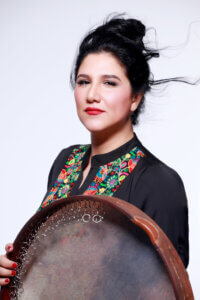[vc_row][vc_column width=”1/6″][/vc_column][vc_column width=”2/3″][vc_column_text css_animation=”bottom-t-top” animation_delay=”200″ uncode_shortcode_id=”156773″]Maureen Nehedar is a vocal artist, composer and paytanit (singer of Jewish liturgical poetry), a poet and researcher of Jewish musical traditions in general and the Jewish Persian tradition in particular. She is a pioneer of the world music scene in Israel and a global leader in the renewal of Jewish music. She has revived the Judeo-Persian poetic and liturgical tradition and saved it from oblivion.

Maureen was born in Isfahan, Iran, and immigrated to Israel with her family when she was a baby, following the Islamic Revolution and the Khomeini takeover. In her youth, she joined the Ankor Children’s Choir (aged 10 to 18), with whom she performed in children’s and youth choir competitions around the world. She was already recognised as a child prodigy and known for her impressive vocal abilities. She studied at the Jerusalem Academy of Music and Dance and completed her high school education there. She then earned two degrees at the Academy in singing and composition, music education and choral conducting, as well as a teaching diploma.

